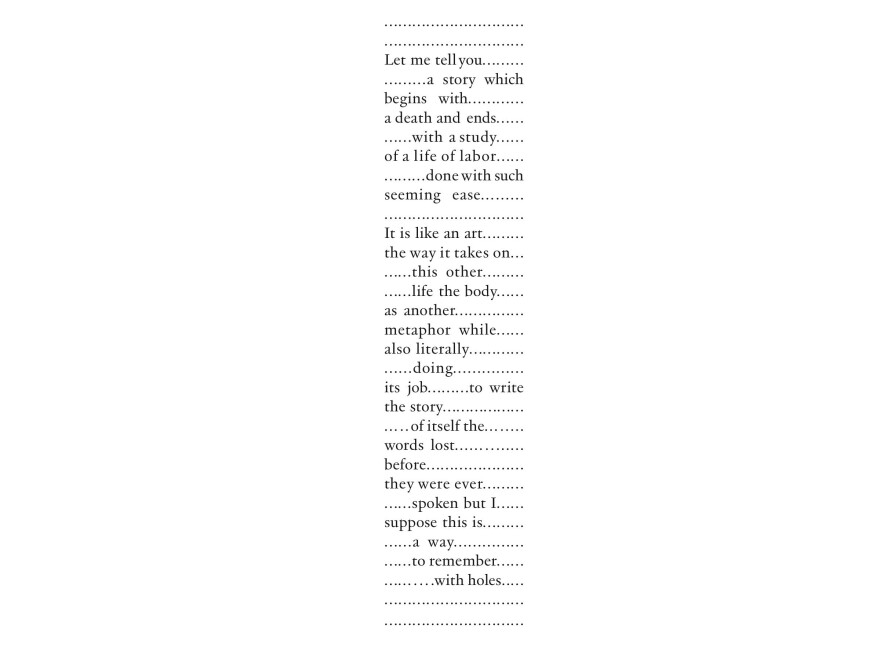In the context of diaspora, the body is a vessel that knows how to adapt. And what does it carry? Pain, love, and resistance. All those, it carries forward.
Chinese American poet Muriel Leung explores this generational inheritance in a new book of poetic essays called Imagine Us, The Swarm.
For Leung, the swarm can mean bees in a hive, the American working class, or the collective Asian American diaspora. On the first page, Leung writes about studying bees, and "thinking of what it means to be at once [a colony] and [alone]." Throughout the book, she attempts to make sense of her individual self not just against her familial history, but also against the Asian American community at large.
In the book's first poem, "This is to Live Several Lives," Leung starts by examining the model minority myth, "... which is this idea that if you work hard enough you can be as successful as white middle class citizens in this country," she says.

But, she says, America's extended history of racial discrimination often makes that success impossible. "Unfortunately, in my father's passing from cancer, something which I think became exacerbated by this devotion to this failing ideology, I learned very early on that this is not an idea that was healthy."
So in her book, Leung considers what it would mean to work against that myth and find some other way forward for the Asian American identity, one that doesn't rely on trying to assimilate, but rather fitting into the larger struggle for liberation in this country.
"As this current political climate goes, [that means] recognizing that there's a lot of movement happening historically and also currently with Black liberation," she says. "Or thinking about what's happening globally and trying to figure out how ... our lives can be interconnected with those around us who have experienced marginalization in some way."
Here's an excerpt from "This is to Live Several Lives:"

During a time when the country is seeing a rise in Anti-Asian hate crimes, Leung also wanted to examine how xenophobia is often tied to the racialization of disease. "This idea of public health sanctions as a way to navigate a larger, generally white, public fear of the other," she says.
In the poem "The Plural Circuits Of Tell," she refers to the Anti-Asian sentiment dredged up by former President Donald Trump referring to the coronavirus as the "China Virus." Here's an excerpt from a footnote in that poem:
An article in The Economist entitled "Chinese Sneezes," which speculates about the growing dominance of Chinese financial markets over the U.S., as published alongside the popular image of an East Asian person and a surgical mask. The image of protection against contagion, which harkened back to the 2002 to SARS outbreak, persists as an ever present reminder of how disease and people can be locked in the same imaginary configuration — as if the disease is and was a people.
Leung's understanding of the relationship between disease and the other is also linked to the cancer that eventually took her father's life. She writes of his death, "Never had I ever seen a body work so hard at being still."
Perhaps the diaspora's years and years of movement eventually lend themselves to loss. Leung points to this the same way in which she points to the pain of labor and the American work ethic. Where within this endless movement does one come to learn of oneself?
That's the question Imagine Us, The Swarm asks. And as much as the book contends with inter-generational and collective trauma, Leung wants us to remember that its lessons come from a place of strength: "Part of repair is we tend to our past but also listen to those who are showing us the way," she says.
Which is what brings us back to the swarm.
"In order to think about things like resistance or collective liberation, I think it does require us to think in terms of the swarm," she says. "So what can we do together better than we can when we're apart?"
This story was edited for radio by Reena Advani, and adapted for the web by Petra Mayer.
Copyright 2021 NPR. To see more, visit https://www.npr.org.



